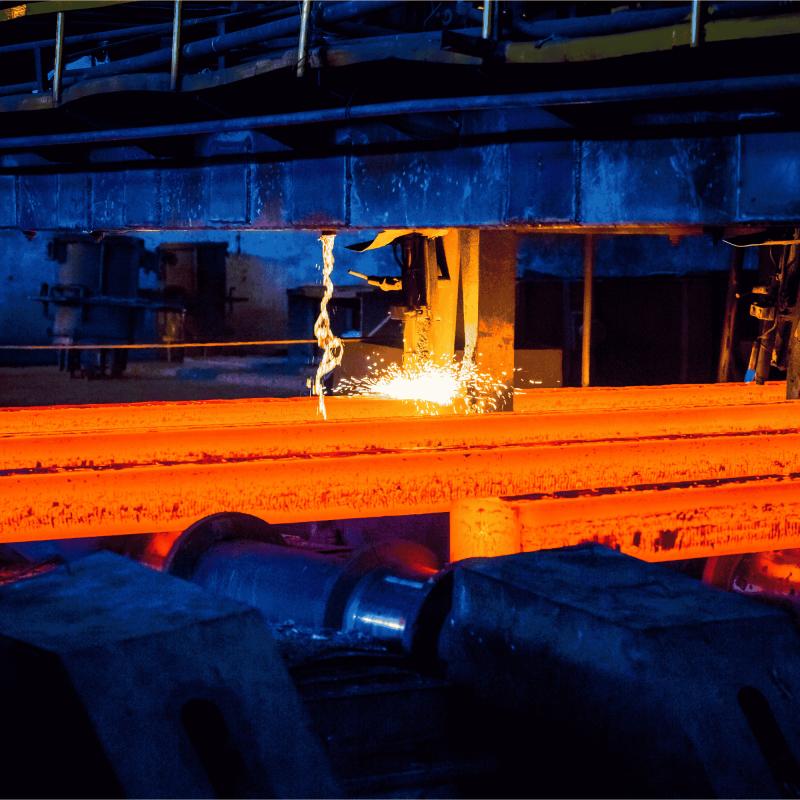Sweden is positioning itself as a prominent global hub for green steel innovation, propelled by advanced hydrogen-based processes and a sustainability-focused ecosystem. Central to this transformation are initiatives like HYBRIT and Stegra (formerly known as H2 Green Steel), which utilize Sweden’s renewable energy sources and high-grade magnetite iron ore to decarbonize steel production. Stegra’s facility in Boden is projected to produce 2.5 million tonnes of fossil-free steel by 2026, with plans to scale up to 5 million tonnes by 2030. Meanwhile, HYBRIT has already achieved the production of sponge iron and crude steel with minimal emissions.
For more details on Sweden green steel market report write your queries at: sales@marksparksolutions.com
The automotive industry is driving strong demand for this green steel, with companies such as Volvo, Scania, and BMW establishing long-term supply agreements for fossil-free products. Sweden benefits from abundant hydropower and nuclear energy, along with its magnetite-rich ore ideal for Direct Reduced Iron production which provides a competitive advantage in the green steel sector. Furthermore, initiatives aimed at creating a circular steel economy are gaining traction, with pilot projects demonstrating up to 97% emissions savings through the reuse of recycled steel profiles.
However, the path to large-scale commercialization is not without challenges. Rising energy costs and limitations in grid infrastructure are impacting project timelines, as evidenced by SSAB’s revised production targets. Additionally, regulatory measures such as the EU’s Carbon Border Adjustment Mechanism (CBAM) affect strategic positioning to ensure competitiveness against carbon-intensive imports. Despite these hurdles, collaboration among steelmakers, miners, and energy providers is fostering increased investment and public confidence in the sector.
For any customization visit: https://marksparksolutions.com/reports/green-steel-market
With the development of industrial clusters in northern Sweden and policy support from the Swedish Energy Agency and the EU Innovation Fund, demand for green steel is rapidly increasing especially within the construction, renewable energy, and export-oriented manufacturing industries. Consequently, Sweden is not only making significant strides in emission reductions but is also reshaping its role as a leader in the global steel economy.
In terms of demand, Sweden green steel market is estimated to record a sale of 265.6 thousand tons in 2025 with the value reaching 13,098 thousand tons by 2032 with a CAGR of 69% during the forecast period.
Despite Sweden’s strong leadership in the green steel transition, several untapped opportunities exist that could further enhance its status as a global hub. A significant area of potential is the export of green hydrogen-based steel technologies. While Sweden concentrates on domestic production, there is an increasing global demand for green steel infrastructure, particularly in regions with limited access to renewable energy. By licensing its innovations or exporting modular green steel plants, especially small-scale DRI units, Sweden could create new revenue streams.
Another often-overlooked opportunity lies in expanding the end-user base beyond traditional sectors such as automotive and construction. Industries like shipbuilding, consumer electronics, and renewable energy equipment including components for wind turbines and solar panels have yet to fully adopt fossil-free steel solutions, even in light of growing ESG pressures.
The reuse and upcycling of industrial steel waste also remain underexploited. Currently, less than 30% of Sweden’s waste steel is utilized in high-grade manufacturing. Advancements in segregation and refining technologies could enable the implementation of circular steel models with significantly reduced lifecycle emissions. Additionally, the development of localized energy hubs near mining and production clusters, powered by wind and hydro, offers an opportunity to stabilize energy costs one of the major challenges facing the sector today.
There is also increasing interest in establishing green steel traceability platforms that utilize blockchain and digital passports to ensure end-to-end carbon transparency. Given Sweden’s advanced digital infrastructure, it is well-positioned to lead in this area.
Furthermore, public infrastructure and housing projects within Sweden and the EU could serve as large-scale anchor clients if procurement policies begin to prioritize low-emission steel. With an estimated 200 million tonnes of steel projected for use in European urban renewal projects by 2035, capturing just 10% of this market with Swedish green steel could yield a market value of €12-15 billion. By pursuing these emerging opportunities, Sweden has the potential to evolve from merely being a production leader to becoming a full-spectrum innovator in the global green steel value chai
3rd Floor, Panchsheel Park,
Aundh,
Pune – 411067,
India.
Mark & Spark Solutions (Wholly Owned by ITvia Data Solutions) is a leading market research consulting firm dedicated to empowering businesses with insightful strategies and solutions for success. Rooted in a commitment to excellence and fueled by innovation, we have become a trusted partner for companies across diverse industries. Our expertise in market dynamics, consumer behavior, and industry trends enables us to provide actionable intelligence that drives growth, refines strategies, and enhances brand performance.
Our team of seasoned researchers, analysts, and consultants collaborates closely with clients to deliver tailored solutions that meet their unique needs. Through our syndicated market research reports, custom market analysis, and strategic consulting services, we provide the insights and expertise that help businesses thrive in competitive markets.
This release was published on openPR.
